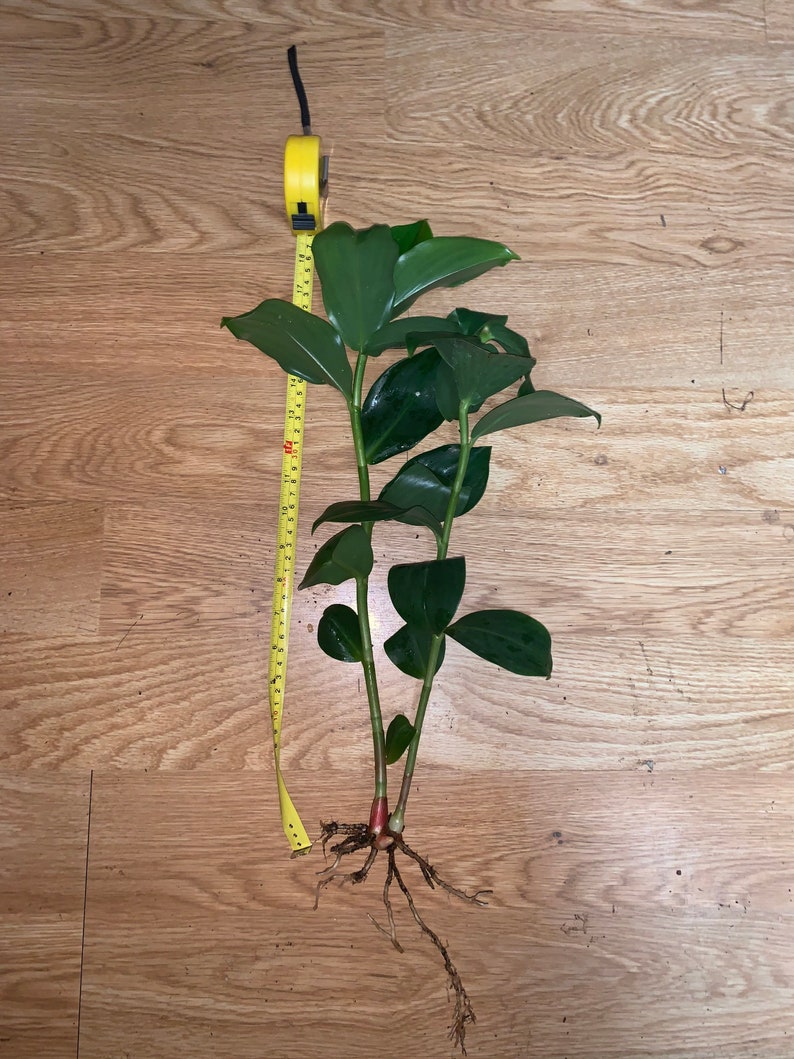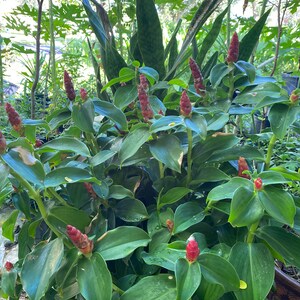

Specific epithet means "sold in shops" and was applied to plants with supposed medicinal properties. It is used equally in savory and sweet dishes. The genus name Zingiber is thought to originate from a Greek name for ginger zingiveris which, in turn, is said to derive from a Sanskrit name for ginger srngavera. Ginger root is readily available in most grocery stores, and is a staple ingredient in many kitchens. Year Round Underground structures: Rhizome Uses: Cut Flower Will Naturalize Resistances. The fruits are red, three-parted capsules that are filled with small, black seeds. Bloom Size: Under 1 Flower Time: Summer Late summer or early fall.

Upright, 1' tall, club-like flowering stalks emerge from the rhizomes, bearing 0.75-1" long, yellow and purple flowers surrounded by tightly appressed green bracts. The leaves are lanceolate in shape and will reach 6-12" long and 0.75-1" wide. Red ginger extract can prevent and kill harmful bacteria in the body so that the immune system will be much stronger. The fibrous, aromatic rhizomes are branched and can reach around 1" in diameter.

Mature plants will reach 3-4' tall and 2-3' wide with upright psudostems made of tightly rolled leaf sheaths and a spreading, shallow, fleshy root system. Zingiber officinale, known as common ginger, is a rhizomatous perennial thought to be native to Southeast Asia but widely cultivated throughout the tropics since antiquity.


 0 kommentar(er)
0 kommentar(er)
